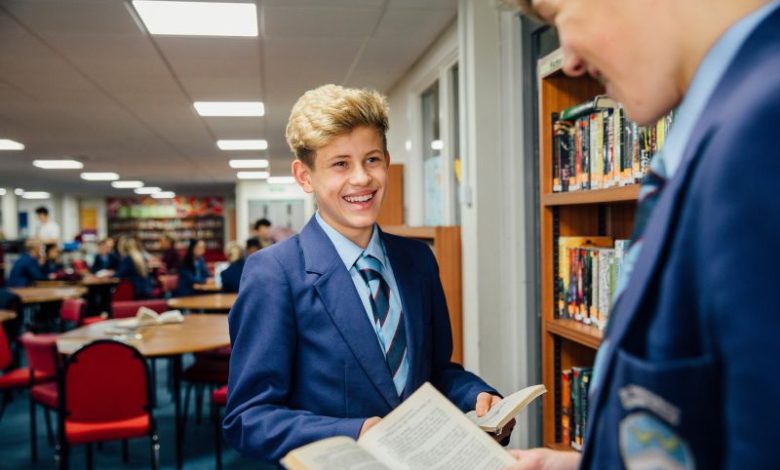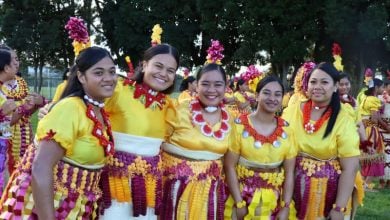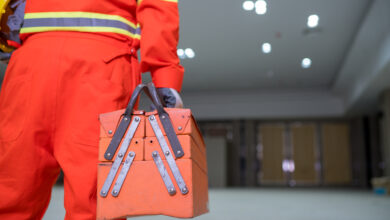
In August, the first annual update on the progress of the National Plan to End Violence Against Women and Children in Australia was delivered.
After the report’s launch, Domestic, Family and Sexual Violence Commissioner Micaela Cronin said that Australia needs to take gendered violence as seriously as it takes terrorism.
Read the latest print edition of School News HERE

School News spoke about the report with Noah Bloch, Co-Head of Curriculum and Lead Program Facilitator at Consent Labs, a not-for-profit that works to end sexual violence in Australia.
“There is a lot to unpack in the report. Some of the most pressing points that stood out to me were the need to take a ‘whole of government, whole of country effort’, that we need to engage differently with young men and boys, and we must redefine masculinity,” explains Bloch.
“Firstly, it will truly take a village to eradicate sexual violence in Australia. This includes encouraging all members of society — including political leaders, corporate leaders, teachers, parents and carers, and young people — to be role models for young men and boys in ways that demonstrate healthy versions of masculinity.”
“Secondly, we need to call young men and boys into these conversations in inclusive and respectful ways. Many of the boys we talk to in our consent and respectful relationships workshops want to learn more and understand more about these topics, though can feel ostracised because of the way these conversations are framed.”
“As a society, we can do better. This includes recognising the complex range of sometimes conflicting messages that young people are receiving from society, including from our political, business and community leaders, about what it means to be a man.” Noah Bloch
“This brings me to the third point about redefining masculinity,” continues Bloch. “It’s time we stopped referring to certain terms, stereotypes, people, or ideas as the single kind of man that someone can be. We need to start discussing, role modelling, and normalising the vast array of positive and healthy versions of masculinity that exist and that most of us want to see in society.”
Social issues on social media
A quick search online for the phrase toxic masculinity or the name Andrew Tate instantly brings thousands of hits, including scores of news articles, many focussing on the rise of his ideology in schools. A recent study conducted by the University of Adelaide and reported on in The Conversation illustrated the increasing levels of toxic masculinity and anti-social behaviour teachers are experiencing in the classroom.
“The rising influence of social media on young men and boys cannot be underestimated and should be taken very seriously,” says Bloch. “However, what is even more important and should be addressed in tandem is the question of why young men and boys are looking for, finding, and engaging with this content in the first place. This isn’t just a social media issue, it’s a social issue as well.”
Bloch adds that the questions we should be asking is: “What messages are children receiving in their day-to-day lives that make them turn to social media for information about masculinity? What experiences are they having at home, school, or in other online forums that make harmful content on social media make them feel seen or heard?”
Toxic masculinity is not just a social media issue, it’s a social issue. Image © highwaystarz, Adobe Stock
He explains that once we start prioritising these questions and understanding the answers, it will become clear that society as a whole, needs to start taking a more proactive and collective effort to creating safe spaces that invite young men and boys into conversations about masculinity.
“At all stages, we need to ensure young people are being talked with, not to. We need to create safe spaces, in all parts of young people’s communities, including schools, that invite them into conversations so they can contribute, drive, and share feedback on how these initiatives are being implemented and how the issue of sexual violence is being addressed as a whole,” says Bloch.

What is a safe space?
“The most effective way to empower young men and boys to learn about and enact healthier versions of masculinity is to create spaces where they feel they can safely express themselves and be listened to,” explains Bloch.
“These spaces should balance empathy with accountability by acknowledging that because men are overwhelmingly the perpetrators of sexual violence, they are key to the solution.” Noah Bloch
It seems a lot to place on the shoulders of young boys, but Bloch explains that in his ‘Positive Masculinity’ programs, it is not only about teaching young men about their own approach to masculinity but also how they respond to others.
“Promoting healthy versions of masculinity contributes to positive outcomes for students themselves as well as everyone they interact with. This includes prioritising active bystanding by standing up against sexual violence, gendered violence, and misogyny. In taking a strengths-based approach to the conversation, young men and boys are empowered rather than shamed regarding their role within the narrative of sexual violence,” explains Bloch.
Eradicating sexual and gendered violence will not happen overnight, says Bloch, and it requires the input and support of the entire community.
“We all need to take a hard look at the evidence. Countless studies show that preventative initiatives like consent education, when delivered in an evidence-based and inclusive way, can be highly effective, though many educators have told our teams on the ground that they are feeling under equipped and uninformed about best practice consent and respectful relationships education.”
Consent Labs focuses on prevention of sexual and gender-based violence through evidence-based, youth-led consent and respectful relationship education, reaching over 80,000 people since 2021.
“No one can do this alone. We need to invite young men and boys into these conversations. We need a truly whole-of-community, whole-of-government, whole-of-country approach to eradicating sexual violence, and fostering inclusive conversations with young men and boys is critical to reaching this outcome.”









